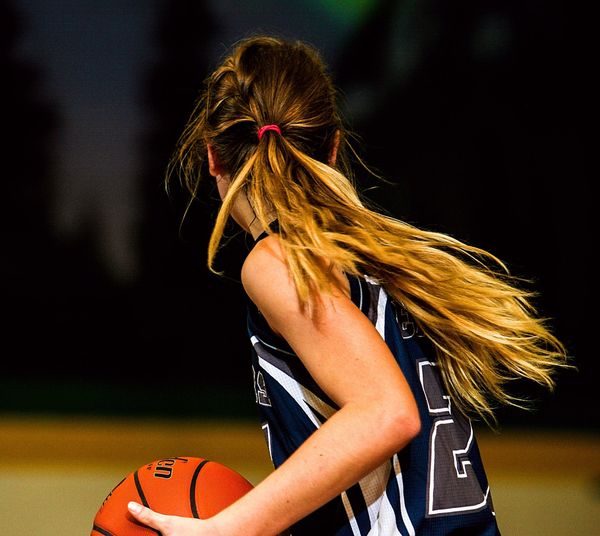I met you when I was just on the cusp of fourteen, bright with idealism, heavy with hope, and in love with music. I may not have been a professional, but it was fun, and I seemed to do pretty well. It was the one activity I was adamant about continuing in high school, signing up for marching band and the concert band class that met every morning at 7:40am. My parents dropped me off at school three weeks before I had to be there, eagerly slathered in sunblock and ready to spend the next weeks making music.
You were as new to the school as I was, a replacement for a much-beloved director who left the year before. You stepped into big shoes and felt their weight with every step. To be sure, many of my classmates didn't help; during classes, they whispered "I wish we had our old band director back," gifting you with a chip on your shoulder. In an effort to make yourself not just The New Guy but the only director, you changed everything you could. You were a tyrant and destroyed all signs of opposition. Fear is cheap, but you forced it down our throats and called it respect.
I watched you bully my classmates and friends. I watched you laugh at kids who couldn't afford music lessons, who took band because they wanted to have fun, not because they wanted to be professionals, kids who didn't want to sit still and play whole notes for an hour and a half every morning. I watched you throw drumsticks at teenagers. I watched you yell at seventeen-year-old girls when their parents left the room.
You didn't care about our happiness, our enjoyment of the art. You only cared about your legacy, what banners the school would carry with your name on them. You whittled an organization of 120 eager teenagers to a sad, defeated 40 who stuck around mostly out of a stubborn sense of obligation.
I remember what you did to me, how I was your favorite person in the room on Monday but worthless on Wednesday. I remember hearing you praise me in front of the rest of the class and feeling on top of the world, like all my hard work and hours of practicing paid off, but you'd yell at me for smiling too much days later. You'd tell me I wasn't serious enough about music. I killed myself in practice rooms, playing music until my wrists ached, begging for my work to be noticed. It fostered a deeply unhealthy perfectionistic streak. I heard you in my head in everything I did: if it's not perfect, it's not good enough.
My best friend and I convened in the girls' bathroom before practice. We worried if it would be a good day or a bad one, steeled ourselves for either outcome. The good days were cliffs and the bad, trenches; it was so easy to dive in and get lost. You made her cry multiple times. You told her mother to stop bothering. You told her she wasn't good enough. She persisted anyway, despite how much it tore her apart to do so.
We had to build each other up the way teachers should.
You told us this was how the world worked. You told us to keep quiet. You told us we would only improve if we listened to you. So, for the most part, we let you bully us and condescend us and tell us we were worthless. There were a few students, usually older, who stood up against your authoritarian regime. They laughed when you screamed. They told us younger ones that we would be okay, your word was not the only word. When you put us down and crushed us under your heel, they picked us up, dusted us off, and let us cry.
You intimidated us like it was a sport. You went down the line to pick out flaws, yelled until my hands shook too much it was impossible to play a note, sent us into the hallway with a metronome and insults that stung like fresh wounds. We tried to choke back the tears when they came because you'd mock them.
You made our lives into a competition we never signed up for. It was every man for himself, and everyone but you lost. Most of us were too scared, too anxious to see you for what you really were. Keeping us occupied with chair challenges that never came or threats from overzealous ninth chair players kept us from seeing that you pulled the strings.
You left before my junior year without so much as an announcement. I was left almost numb, the way great pain leaves a great emptiness, left to realize what was left of me without being picked apart at every moment. It was like the days after a war: we gathered what remained, buried what didn't. The year following was like a daze: we expected a battle but got only kindness, only encouragement, from a new band director who didn't like to use your name.
I wish, sometimes, perhaps perversely, that you had stuck around long enough for me and the other people you tore down to find our voices. I have built a backbone out of stitched-together scars and I promise, you would not be able to break me now. If you made me stand up in front of the whole class and tried to humiliate me, I would look you right back in the eye and tell you no.
After you left, we started talking to other teachers, to our parents, to our other friends. Many of them said the same thing: why didn't you mention this earlier?
We didn't think we could. You made us feel like the toil you put us through was standard-issue.
But it's years past, and like all deep wounds, it still aches when the rain comes over the horizon. My best friend and I still reminisce over the bitter memories of our high school years, sharing articles about narcissists and sociopaths and emotional abuse. We remember that we went through this together. We remember that we managed to come out of it alive.
You tainted music for me. When it became apparent that no matter how hard I tried, you lingered like cigarette smoke on my skin and in my hair, I had to let it go. I found other passions, pursued other career options. If it had not been for you, though, I may still be studying music. If not for you, I would still play my favorite songs. If not for you, I'd look up amateur orchestras nearby.
In fifteen years, you may not remember me. But I know I'll never be able to forget you.





















